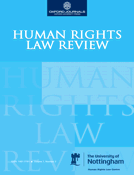In the inugural Arthur Browne lecture, Prof Gráinne de Búrca says that EU anti-discrimination law is not really in decline
Arthur Browne KC MP (1756-1805) (pictured left; see wikipedia | DNB) was a Regius Professor of Law in Trinity College Dublin, and a leading Irish lawyer and politician, at the end of the eighteenth century:
…Browne was one of the most distinguished academic lawyers to teach in Trinity College, Dublin, perhaps the ablest. His writings are still worth reading; and not merely for their historic interest. His life reveals a lawyer of wide culture and compassion, who tried in the turmoil and cruelty of eighteenth century Ireland to reconcile opposition to popular violence and an attachment to the established state and church with opposition to arbitrary state power. His views on legal education and on many aspects of the law were enlightened for the time. Browne deserves a place in the history of Irish law, and not merely as the last Irish Prime Serjeant.
[Paul O’Higgins “Arthur Browne (1756-1805):
An Irish Civilian” (1969) 20 NILQ 255, 270].The Irish jurist Arthur Browne was one the most gifted legal scholars of eighteenth-century Ireland; he was also an educator, an advocate, and a parliamentarian. Born in America of Irish parentage, Browne studied at Trinity College, Dublin, eventually becoming professor of civil law and publishing works on civil, admiralty, and ecclesiastical law at the turn of the nineteenth century.

 A perennial problem in academic writing is the lack of feedback along the way. Academics can run ideas by other academics and in class; works in progress can be presented at research seminars; and published papers can provoke published replies. In response, the original idea can be refined, and the process of iterative development can continue. One way to short-circuit the process is to publish ideas in early draft form on blogs and similar sites (and many of the posts on this site are well on their way to incorporation into academic articles).
A perennial problem in academic writing is the lack of feedback along the way. Academics can run ideas by other academics and in class; works in progress can be presented at research seminars; and published papers can provoke published replies. In response, the original idea can be refined, and the process of iterative development can continue. One way to short-circuit the process is to publish ideas in early draft form on blogs and similar sites (and many of the posts on this site are well on their way to incorporation into academic articles). 



